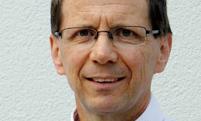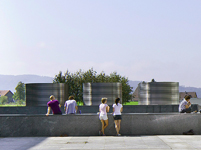Eating Tomorrow (2012)

Die dritte Sommerakademie für Nachhaltigkeit war ein Erfolg. Bearbeitet haben die Studierenden drei Fallstudien rund ums Thema Welternährung: Smallholder Livelihoods, Food Waste und Urban Farming. Höhepunkt war die Schlusspräsentation der Fallstudien im HUB Zürich und «Frau Gerolds Garten».
Besondere Aufmerksamkeit erregte das multifunktionale «Aquaponic-Gewächshaus». Dieses besteht aus einem Gemüsebeet oben und einem Fischbecken unten. Das Wasser zirkuliert zwischen Gemüsebeet und Fischtank, so dass das Modell 80-90% weniger Wasser verbraucht als herkömmliche Anbaumethoden. Die Ausscheidungen der Fische dienen dem Gemüse als Dünger und die Pflanzen reinigen das Wasser für die Fische. Inzwischen steht das «Aquaponic-Gewächshaus» im «SeedCity», dem Gemeinschaftsgarten auf dem ETH-Campus Hönggerberg.
Die Abschlussberichte finden Sie hier:
Smallholder Livelihoods >>
Food Waste >>
Urban Farming >>
Eating Tomorrow - rethinking the world food system
1 July - 20 July 2012. Location: ETH Zurich, Switzerland.
Find out more about the program in our reader >>.
Ideas into Action
With the summer school 2012, the ETH Zurich wants to introduce innovative and sustainable approaches to secure our global food supply and find new ways of confronting the mayor challenges associated with food security. For three weeks, the ETH Zurich will create an environment in which interdisciplinary and international teams can work together with industry partners to create solutions for concrete case studies.
Important learning goals are to:
- understand the global food system, the inter-linkages, complexities, key players and key challenge
- comprehend the social, political and economic aspects of the food system and the major challenges associated
- work out the major environmental drivers behind the global food challenges
- know the social and environmental challenges of food security and potential solutions to ensure it
- to understand the social and environmental impacts of our current global food system
- learn working in interdisciplinary and intercultural teams
- apply creative technologies in solution finding processes
- get hand's on experience by applying knowledge in real life case studies
A global Challenge
Food is one of the most basic human needs, but famine is still not a thing of the past. Having said that, we're also at a point were more than 1.1 billion people worldwide are overweight. Although quite different in their appearance, they are just the two sides of the same coin, a world food system out of balance. Rising food prices and subsequent riots, environmental pollution and degradation as well as climate change are other consequences. And causes at the same time.
Besides from understanding this complex and intertwined system, the greatest challenges are to make food production sustainable while controlling greenhouse gas emission, conserving dwindling water supplies and decreasing biodiversity. This will require a revolution in the social and natural sciences concerned with food production, as well as a breaking down of barriers between fields. The goal is no longer simply to maximize productivity, but to optimize across a far more complex landscape of production, environmental, and social justice outcomes.
Outline
The participants of the summer school will be composed of 15 students from the ETH Zurich and 15 students from other academic institutions, in addition to faculty members and industry partners coming from various fields of expertise. During the first week, students will receive an introduction to all topics relevant to the world food system and its related fields. This will occur through a series of lectures and workshops conducted by both local and international experts as well as inputs speeches by and discussions with sustainability pioneers. In weeks 2 and 3, students will be split into the three thematic groups to carry out a guided case study from an industry partner, and to gain further input through lectures, workshops and excursions in one of the three topics:
- Urban Farming
- Smallholder Livelihood in Developing Countries
- Food Waste
A Strong Team
Successful projects are the result of dedicated individuals and teams. The ETH Sustainability Summer School Programme will be organised by ETH Sustainability, the central hub for coordinating sustainability activities at ETH Zurich, and the World Food Systems Competence Centre in collaboration with the Department of Environmental Systems Science, the Department Health Sciences and Technology, the Department of Architecture, Eawag, NADEL, the Club of Rome, Exploration Architecture, Federal Office for Agriculture, FiBL, Halba and Helvetas. Input and support for the formulation of individual case studies is provided by selected firms and institutes that occupy a leading role in the field of sustainable development namely the FAO, Syngenta and the Urban Farmers.









